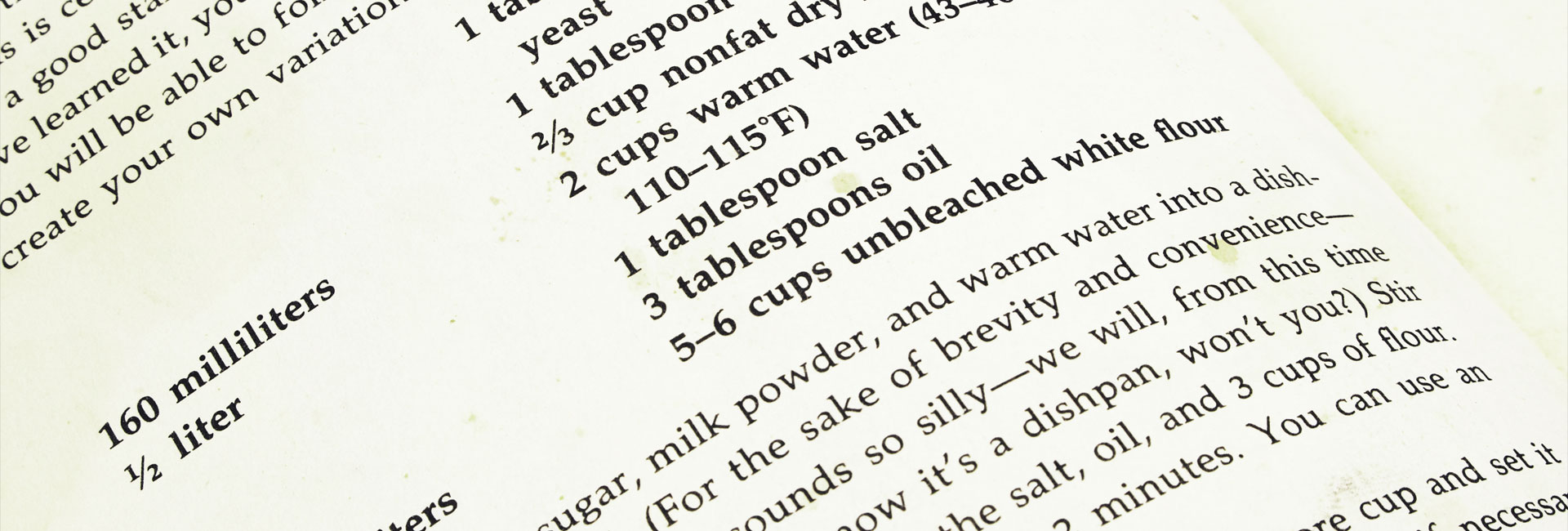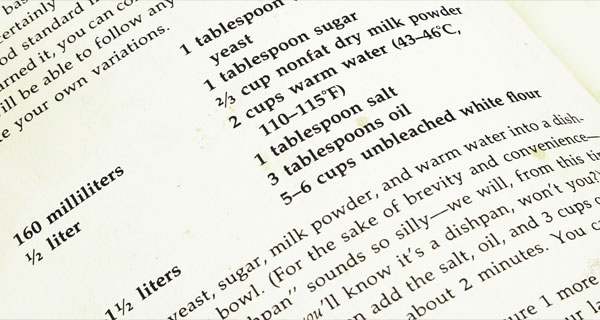
Used under a Creative Commons Licence
Can You Copyright a Recipe in Australia? A Legal Guide for Food Creators
If you’re a chef, food blogger, stylist, photographer or food brand that shares recipes — either in print or online — it’s worth asking: can you copyright a recipe in Australia? The answer is nuanced, but understanding the law can help you avoid being copied, or accidentally infringing someone else’s work.
At Sharon Givoni Consulting, we’re often asked whether recipes are protected under copyright law. This blog explains how Australian copyright applies to food content, including recipes, instructions, photography and more.
When does copyright apply in the kitchen?
Copyright in Australia is governed by the Copyright Act 1968 (Cth). A written recipe may be protected as a literary work, but only the expression of the recipe — not the idea, concept, or basic ingredients and steps.
This means you can’t copyright the concept of a caramel slice or roast chicken. Even the ingredient list and standard cooking methods, if presented plainly, aren’t protected. What is protected is the original and creative wording you use — the tone, structure, unique narrative and expression.
So if someone copies your exact written instructions and republishes them without permission, that might be infringement. But if they make the dish and write their own version in their own words, that may not breach copyright.
What Counts as “Original” in Copyright Law?
In copyright terms, a work must be “original” to be protected. This doesn’t mean the recipe must be groundbreaking. It means the expression of the recipe must be your own work, reflecting your skill, judgement and effort.
Copyright does not apply to recipes that:
- List ingredients only
- Use standard, functional instructions (e.g. “mix,” “bake at 180°C”)
- Are commonly known or used in most kitchens
However, substantial literary expression — like creative stories, commentary, or vivid step-by-step descriptions — may bring a recipe within copyright protection.
To qualify, a recipe also needs to be in material form: written, typed, recorded, or otherwise documented. A spoken recipe passed down through generations may not be protected unless written down or recorded.
The other thing to note is that there is no registration system for copyright in Australia. Copyright is automatic upon creation.
Reproduction vs Recreation
The law makes a clear distinction between copying a recipe and recreating a dish.
Making someone’s lasagna at home is not infringement. Uploading their exact written recipe to your blog without permission might be.
Infringement may include:
- Copying and sharing a recipe online
- Posting it to social media
- Including it in a book without permission
- Translating it and publishing it
And importantly: giving credit is not the same as getting permission. Attribution does not avoid liability if you’ve copied a substantial part of someone’s recipe text.
Public Recipe Disputes
Recent media coverage has highlighted disputes where popular recipes were allegedly copied and republished by other creators. The reactions were strong, even though at the time of writing there have been no court proceedings.
While we now know that a basic list of ingredients in a recipe might not be protected by copyright law, the story can change if a recipe is accompanied by substantial literary expression-such as detailed explanations, vivid descriptions, or unique directions-or if it appears as part of a curated collection in a cookbook, it may then qualify for copyright protection.
In essence, it’s not the ingredients themselves, but the original way a recipe is written and presented that can be safeguarded under the law.
Don’t Forget About Photos and Videos
The protection of recipe content isn’t limited to words. Photos, illustrations, and videos are considered artistic works under Australian copyright law.
This means that your recipe photography or cooking tutorial videos can’t be copied, reposted, or reused without permission — even if the recipe itself isn’t protected.
Photographers, food stylists and content creators should ensure their contracts address copyright ownership and licensing.
How to Protect Your Recipe Content
If you’re publishing or sharing recipes, here are some practical legal tips:
- Write with originality – Express your recipes in your own voice and style.
- Add copyright notices – e.g. © Your Name 2025
- Use contracts or terms – especially when collaborating or licensing work.
- Record your process.
- Don’t assume attribution equals permission.
- Set expectations in writing – e.g. brand partnerships, influencer agreements.
- Protect visuals – Make sure your images and videos are credited or licensed properly.
- Get advice before making claims to avoid defamation or unjustified threats.
- Consider trade marks – if your recipe name or product brand is unique.
- Talk to a lawyer (like us!) – especially before launching or responding to disputes.
At Sharon Givoni Consulting, we can help you understand what you can protect and what to do if you are copied. We also draft contracts, negotiate licensing deals, and help food businesses develop IP strategies and advise on food and labelling law under the Food Standards Code and related legislation.
FAQs Recipes and Copyright in Australia:
Can someone copy my recipe if they credit me?
Attribution doesn’t replace permission. You still own the rights to your original expression.
Can I protect a recipe name?
Potentially, through trade mark registration, especially if it’s unique or part of a brand.
What if I see someone copying my recipe online?
Get legal advice before acting.
Is video content of a recipe protected?
Yes, videos are protected as films and artistic works under copyright law.
How do I prove I created a recipe?
Keep records of drafts, screenshots and working files.
Need help?
Contact Sharon Givoni Consulting – we work with food businesses, creatives and content-driven businesses.
Further reading
Learn all about how copyright works:
https://sharongivoni.com.au/short-guide-copyright-law-australia/
Receipt Dispute:
https://diannejacob.substack.com/p/food-blogger-charges-influencer-with
Copyright in the kitchen article by SBS about the dispute:
https://www.sbs.com.au/news/article/recipetin-eats-vs-brooki-bakehouse-why-copyright-in-the-kitchen-is-a-murky-field/dhahappzf
Please note the above article is general in nature and does not constitute legal advice.
Please email us info@iplegal.com.au if you need legal advice about your brand or another legal matter in this area generally.


